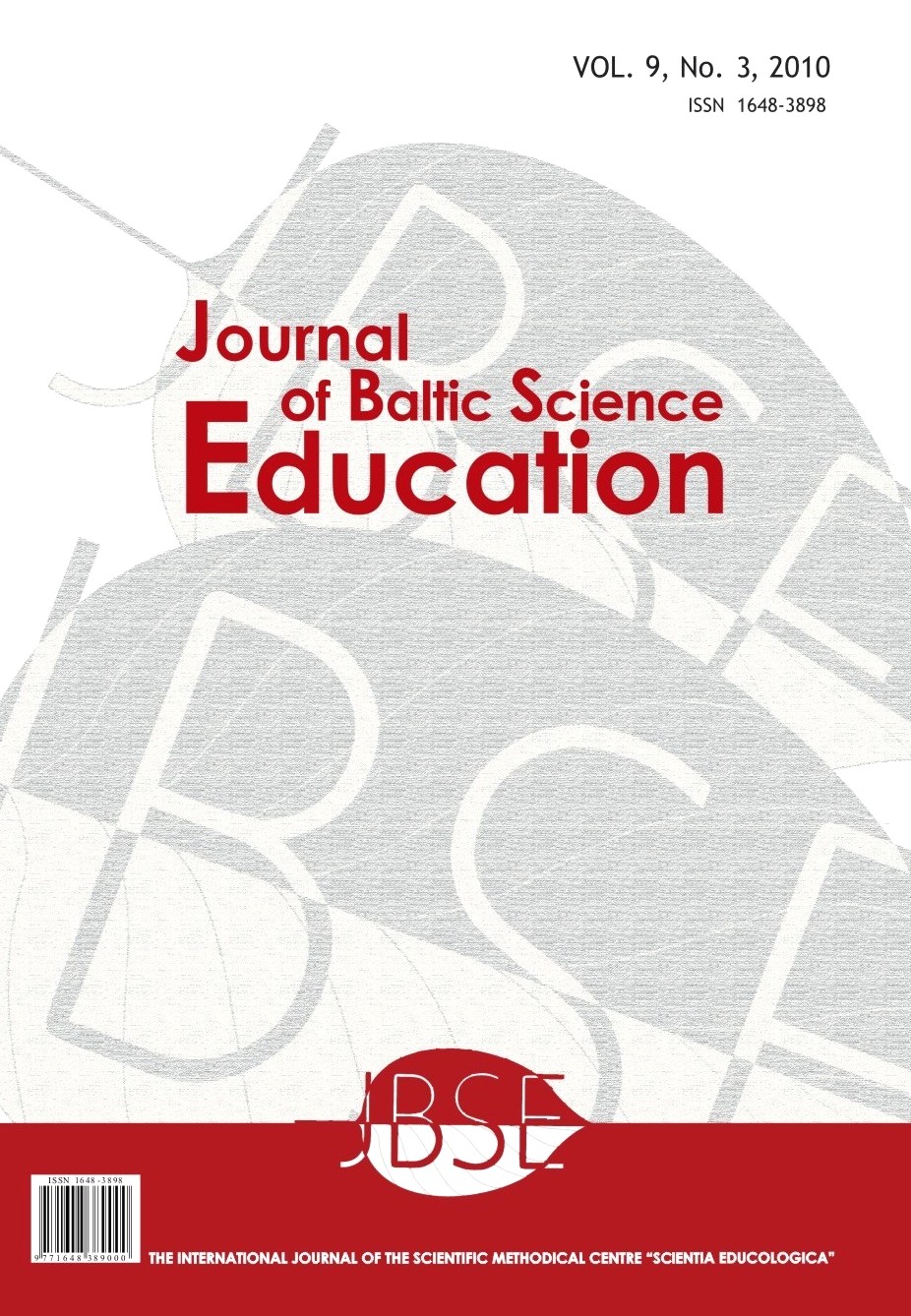RESIDENT SCIENTISTS’ INSTRUCTIONAL PRACTICE AND THEIR PERCEIVED BENEFITS AND DIFFICULTIES OF INQUIRY IN SCHOOLS
RESIDENT SCIENTISTS’ INSTRUCTIONAL PRACTICE AND THEIR PERCEIVED BENEFITS AND DIFFICULTIES OF INQUIRY IN SCHOOLS
Author(s): Frackson Mumba, William F. Mejia, Vivien Mweene Chabalengula, Simeon MbeweSubject(s): Social Sciences, Education
Published by: Scientia Socialis, UAB
Keywords: Resident Scientist; inquiry; teaching science; benefit;
Summary/Abstract: This study determined the nature of the laboratory activities undertaken by Resident Scientists in high schools through a science education outreach project. This study also attempted to determine Resident Scientists’ perceived benefits and difficulties of students doing inquiry science activities in schools. A sample comprised eight Resident Scientists at a medium-sized University in Midwest of the USA. Resident Scientists were serving in a University-School partnership project funded by the National Science Foundation (NSF) GK-12 program. Data was collected through a questionnaire. Results show that the reported laboratory activities were at guided and verification inquiry levels and nothing at structured and open inquiry levels. Resident Scientists recognized the important role of inquiry, benefits and difficulties for implementing inquiry in schools. Their perceived difficulties for inquiry in schools represent barriers for open inquiry in science classrooms. These findings have some implications for science learning, teaching and teacher education.
Journal: Journal of Baltic Science Education
- Issue Year: 9/2010
- Issue No: 3
- Page Range: 187-195
- Page Count: 9
- Language: English

